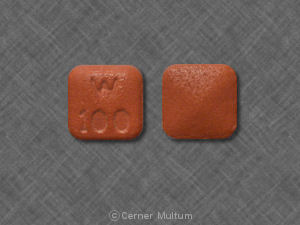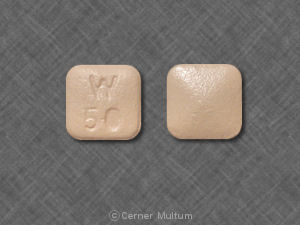What is the most important information I should know about desvenlafaxine?
Do not use desvenlafaxine within 7 days before or 14 days after you have used an MAO inhibitor, such as isocarboxazid, linezolid, methylene blue injection, phenelzine, rasagiline, selegiline, or tranylcypromine.
Some young people have thoughts about suicide when first taking an antidepressant. Stay alert to changes in your mood or symptoms. Report any new or worsening symptoms to your doctor.
Do not stop using desvenlafaxine without first talking to your doctor.
What is desvenlafaxine?
Desvenlafaxine is a selective serotonin and norepinephrine reuptake inhibitor (SNRIs) antidepressant. Desvenlafaxine affects chemicals in the brain that may be unbalanced in people with depression.
Desvenlafaxine is used to treat major depressive disorder.
Desvenlafaxine may also be used for purposes not listed in this medication guide.
What should I discuss with my healthcare provider before taking desvenlafaxine?
You should not use this medicine if you are allergic to desvenlafaxine or venlafaxine (Effexor).
Do not use desvenlafaxine within 7 days before or 14 days after you have used an MAO inhibitor, such as isocarboxazid, linezolid, methylene blue injection, phenelzine, rasagiline, selegiline, or tranylcypromine. A dangerous drug interaction could occur.
Some medicines can interact with desvenlafaxine and cause a serious condition called serotonin syndrome. Be sure your doctor knows if you also take stimulant medicine, opioid medicine, herbal products, or medicine for depression, mental illness, Parkinson's disease, migraine headaches, serious infections, or prevention of nausea and vomiting. Ask your doctor before making any changes in how or when you take your medications.
Tell your doctor if you have ever had:
- heart disease, high blood pressure, high cholesterol, or a stroke;
- bipolar disorder (manic depression);
- depression, suicidal thoughts;
- liver or kidney disease;
- glaucoma;
- seizures or epilepsy;
- a bleeding or blood clotting disorder; or
- low levels of sodium in your blood.
Some young people have thoughts about suicide when first taking an antidepressant. Your doctor should check your progress at regular visits. Your family or other caregivers should also be alert to changes in your mood or symptoms.
Taking desvenlafaxine during late pregnancy may bleeding in the mother or serious medical problems in the newborn baby. Tell your doctor if you are pregnant.
If you are pregnant, your name may be listed on a pregnancy registry. This is to track the outcome of the pregnancy and to evaluate any effects of desvenlafaxine on the baby.
It may not be safe to breast-feed a baby while you are using this medicine. Ask your doctor about any risks.
Desvenlafaxine is not approved for use by anyone younger than 18 years old.
How should I take desvenlafaxine?
Follow all directions on your prescription label and read all medication guides or instruction sheets. Use the medicine exactly as directed.
Take desvenlafaxine with water at the same time each day, with or without food.
Swallow the tablet whole and do not crush, chew, or break it.
Your blood pressure will need to be checked often.
It may take several weeks before your symptoms improve. Do not stop using desvenlafaxine without first talking to your doctor. You may have unpleasant side effects if you stop taking this medicine suddenly.
Some tablet forms of desvenlafaxine are made with a shell that is not absorbed or melted in the body. Part of the tablet shell may appear in your stool. This is a normal side effect and will not make the medicine less effective.
Store at room temperature away from moisture and heat.
What happens if I miss a dose?
Take the medicine as soon as you can, but skip the missed dose if it is almost time for your next dose. Do not take two doses at one time.
What happens if I overdose?
Seek emergency medical attention or call the Poison Help line at 1-800-222-1222.
What should I avoid while taking desvenlafaxine?
Desvenlafaxine may impair your thinking or reactions. Be careful if you drive or do anything that requires you to be alert.
What are the possible side effects of desvenlafaxine?
Get emergency medical help if you have signs of an allergic reaction: skin rash or hives; difficulty breathing; swelling of your face, lips, tongue, or throat.
Report any new or worsening symptoms to your doctor, such as: mood or behavior changes, anxiety, panic attacks, trouble sleeping, or if you feel impulsive, irritable, agitated, hostile, aggressive, restless, hyperactive (mentally or physically), more depressed, or have thoughts about suicide or hurting yourself.
Call your doctor at once if you have:
- a seizure (convulsions);
- easy bruising or bleeding (nosebleeds, bleeding gums), blood in your urine or stools, coughing up blood;
- blurred vision, eye pain or swelling, or seeing halos around lights;
- cough, chest discomfort, trouble breathing; or
-
low levels of sodium in the body --headache, confusion, severe weakness, memory problems, feeling unsteady, hallucinations.
Seek medical attention right away if you have symptoms of serotonin syndrome, such as: confusion, hallucinations, restlessness, fever, fast heart rate, muscle stiffness, loss of coordination, nausea, vomiting, or diarrhea.
Common side effects may include:
- dizziness, drowsiness, anxiety;
- increased sweating;
- nausea, decreased appetite, constipation;
- sleep problems (insomnia); or
- decreased sex drive, impotence, or difficulty having an orgasm.
This is not a complete list of side effects and others may occur. Call your doctor for medical advice about side effects. You may report side effects to FDA at 1-800-FDA-1088.
What other drugs will affect desvenlafaxine?
Taking desvenlafaxine with other drugs that make you sleepy can worsen this effect. Ask your doctor before you take opioid medication, a sleeping pill, a muscle relaxer, or medicine for anxiety or seizures.
Many drugs (including some over-the-counter medicines and herbal products) can increase your risk of bleeding if you take them with desvenlafaxine, especially:
- a blood thinner such as warfarin, or other medicine used to prevents blood clots; or
-
an NSAID (nonsteroidal anti-inflammatory drug) --aspirin, ibuprofen (Advil, Motrin), naproxen (Aleve), celecoxib, diclofenac, indomethacin, meloxicam, and others.
This list is not complete and many other drugs may affect desvenlafaxine. This includes prescription and over-the-counter medicines, vitamins, and herbal products. Not all possible drug interactions are listed here.
Where can I get more information?
Your pharmacist can provide more information about desvenlafaxine.
Remember, keep this and all other medicines out of the reach of children, never share your medicines with others, and use this medication only for the indication prescribed.
Every effort has been made to ensure that the information provided by Cerner Multum, Inc. ('Multum') is accurate, up-to-date, and complete, but no guarantee is made to that effect. Drug information contained herein may be time sensitive. Multum information has been compiled for use by healthcare practitioners and consumers in the United States and therefore Multum does not warrant that uses outside of the United States are appropriate, unless specifically indicated otherwise. Multum's drug information does not endorse drugs, diagnose patients or recommend therapy. Multum's drug information is an informational resource designed to assist licensed healthcare practitioners in caring for their patients and/or to serve consumers viewing this service as a supplement to, and not a substitute for, the expertise, skill, knowledge and judgment of healthcare practitioners. The absence of a warning for a given drug or drug combination in no way should be construed to indicate that the drug or drug combination is safe, effective or appropriate for any given patient. Multum does not assume any responsibility for any aspect of healthcare administered with the aid of information Multum provides. The information contained herein is not intended to cover all possible uses, directions, precautions, warnings, drug interactions, allergic reactions, or adverse effects. If you have questions about the drugs you are taking, check with your doctor, nurse or pharmacist.
Copyright 1996-2018 Cerner Multum, Inc. Version: 8.02. Revision date: 2/9/2018.

